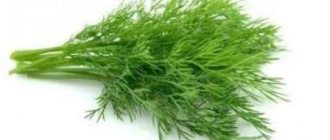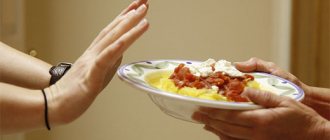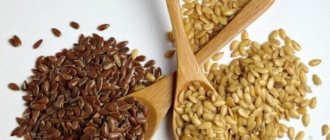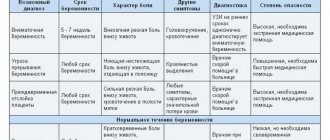What to do if there is constant flatulence
Flatulence in adults, the causes and treatment of which do not give a lasting positive result, requires a special approach.
Basic principles that should be followed in case of constant flatulence:
- eat food in a calm environment, measuredly;
- avoid dietary errors and foods that stimulate gas formation;
- reduce daily stress levels;
- normalize intestinal microflora;
- treat and prevent gastrointestinal diseases.
If adults experience symptoms of flatulence, it is necessary to choose a treatment method depending on the cause. Only a properly selected drug or remedy can give a positive result, since the causes of bloating are varied and not always food related.
Causes
Today, many causes of bloating are known.
- Formation of inflammatory processes in the digestive organs;
- Development of chronic pathology after recent illnesses. Such diseases include enteritis, pancreatitis;
- Bloating occurs when there is intestinal obstruction;
- Gas formation can cause dysbacteriosis;
- The condition manifests itself in intestinal diseases;
- The manifestation is observed during stressful situations;
- Abdominal bloating can cause helminthiasis;
The causes of bloating may include food intake. These products include:
- Legumes;
- White cabbage;
- Yeast baked goods;
- Carbonated water, kvass, beer;
Intestinal diseases
With diseases of the small intestine, the stomach hurts near the navel or in the middle section. Gas formation is increased and occurs 2-3 hours after eating, when food has entered the intestines. Painful sensations accompany bloating, transfusions in the lower sections, and flatulence.
Gastric dyspepsia (difficulty in digestion). Symptoms: heaviness after eating, unpleasant aftertaste, bad breath. In the morning, nausea, belching. The stomach is rumbling, swollen in the upper part. The cause of exacerbation is certain foods.
Intestinal dyspepsia is associated with insufficient secretory activity of the stomach, pancreas, and lack of bile. Causes: poor diet, predominance of protein or carbohydrate foods, intestinal infection. In the intestines there is transfusion and rumbling, bloating, flatulence, loose stools.
Enteritis. The stool is loose. In severe forms of the disease, food absorption is impaired, the patient loses weight, and hair falls out. Irritability, frequent mood swings. The stomach is swollen and hurts. In the chronic form, the symptoms are enhanced by drinking cow's milk.
Colitis. In the colon, the removal of water from stool is impaired, causing loose stools. The spasm compresses the inflamed area of the intestine, complicating the passage of feces - the cause of pain, bloating, and constipation.
Intestinal dyskinesia. Intestinal motor function is impaired, spasm. The lower abdomen is swollen and painful, rumbling and transfusion. The cause of the attack is a tight belt, incorrect posture, heavy food, excessive excitement. Constipation predominates, and defecation is accompanied by a feeling of incomplete emptying.
Mesenteric ischemia. Older people are more likely to suffer from blood flow disorders. The mesenteric arteries of the small or large intestine are narrowed or blocked, which is common in atrial fibrillation. Their narrowing is the cause of pain in the middle and upper part of the abdominal cavity when the intestines contract. It hurts after eating for 1-1.5 hours. Nausea, bloated stomach, loose stools or constipation. In case of exacerbation, emergency hospitalization is required.
Celiac disease. Hereditary inability to digest gluten is the cause of the accumulation of harmful substances in the small intestine. They disrupt digestion and metabolic processes, and increase gas formation. The body is dehydrated. Anemia, caries.
When harmful substances accumulate in the gastrointestinal tract, the defenses spend a lot of effort to neutralize their negative effects. The body gets tired faster, resists infections less well, and gets sick more often. Bad breath, bloating due to gas formation.
The activity of pathogenic microflora and their waste products also contribute to increased gas formation.
A healthy body is inhabited by about 15 types of microorganisms, of which 7 species are in the intestines: Giardia, Trichomonas, Balantidia, Cryptosporidium. Infection occurs through food, water, and household contact.
Giardia damages the mucous membrane of the gallbladder. Giardiasis is the cause of swelling and bloating. Nausea, loose stools or constipation, pain at the top and in the umbilical region.
Ignoring these symptoms is the cause of the development of gallbladder dyskinesia (motility disorders), cholecystitis (inflammation of the gallbladder).
The cause of bloating in biliary dyskinesia, chronic cholecystitis and hepatitis is a violation of the outflow of bile. Pain in the right hypochondrium, irritability. Fatty foods cause loose stools.
https://www.youtube.com/watch?v=cGCYrkUj2dk
With amoebic dysentery, the abdomen is swollen, the cause is damage to the colon mucosa, it is accompanied by abundant mucus and pus. The processes of digestion and absorption, and removal of waste from the intestines are disrupted. It swells, I often want to go to the toilet, my stool is loose. Nausea, vomiting, chills, weakness.
Rotavirus infection (“intestinal flu”) affects the gastrointestinal tract. In the initial stage, the stomach growls and is swollen. Penetration of rotavirus into the duodenum and upper small intestine damages the mucous membrane, disrupts the production of enzymes and absorption processes. Fever, vomiting. Diarrhea is a cause of dehydration.
Long-term treatment with medications reduces intestinal barrier function.
The predominance of staphylococci is the cause of fever, chills, pain, and bloating, especially along the large intestine. The stool is frequent and liquid, with mucus, blood and pus.
If the cause of dysbacteriosis is Candida and Aspergilla fungi, pain in the navel area, heaviness and bloating. The stool is liquid, bloody and foamy, with the release of films and lumps. There is no appetite, the tongue is crimson.
Aspergilla is the cause of intestinal dysbiosis in gastritis with high acidity, after long-term use of antibiotics (tetracycline). Nausea, rashes on the mucous membranes, swelling, moldy taste in the mouth. Due to severe intoxication, the state after eating is similar to intoxication.
Dysbacteriosis causes a deficiency of vitamins, especially group B:
- sleep disturbance (B1 deficiency);
- stomatitis, hair loss, nail changes (B2 deficiency);
- impaired hematopoietic function, damage to the sheath around nerve fibers, numbness of the limbs, impaired coordination of movements (B12 deficiency).
An acute form of gastritis - inflammation of the gastric mucosa - causes fullness in the stomach, bloating, loose stools or constipation.
The chronic form is accompanied by pain and disturbances in the production of gastric juice. Smoking contributes to the development of the disease.
- With increased acidity, the belching is sour, nauseating, and heartburn is tormented.
- With low acidity, nausea, vomiting, rapid saturation, flatulence. Dry skin, brittle nails, thin hair.
The cause of bloating is hemorrhoids. The disease causes pathological expansion and tortuosity of the hemorrhoidal veins of the rectum due to stagnation of blood in the pelvis due to constipation, a sedentary lifestyle, pregnancy, and physical stress.
- With protruding hemorrhoids, the head hurts and feels dizzy, the limbs go numb, the stomach is tense and swollen, and there is a burning sensation in the anus. The stool is loose, alternating with constipation.
- Manifestations of hidden hemorrhoids: fainting, suffocation, rapid heartbeat, pain in the sacrum.
Nodules and lumps are removed surgically or using traditional medicine. For prevention, it is useful to move more and prefer firm seats. Avoid spicy foods and alcohol.
Constipation, flatulence
For constipation, bowel movements occur within 48 hours or less. The feces are dense. Defecation is accompanied by discomfort, a feeling of incomplete emptying, a full stomach, and bloating. Pain along the colon, unhealthy sallow-gray skin tone, rash on the face or back.
The cause of constipation is poor diet, nervous and mental stress, and alcohol.
With flatulence, the stomach and intestines are swollen with gases, and their movement along the intestines is painful.
Flatulence is common in small children. The stomach is tense, the behavior is restless.
Pregnant women suffer from constipation and flatulence. To prevent bloating, limit or exclude legumes, peas, cabbage, black bread, grapes, plums, and their juices.
Changing your diet
When you change your diet - for example, giving up meat - the body does not have time to readjust and reacts with bloating, distension in the stomach and intestines, constipation, and loose stools.
Therefore, experimenting with menus requires gradualism.
Another possible cause of bloating is an allergy to citrus fruits, peaches, strawberries, sweets, chicken eggs, honey and its derivatives, spices, meat, fish, etc.
Manifestations of an allergic reaction are skin changes, rashes, eczema, abdominal pain, gas, bloating, belching, vomiting, diarrhea or constipation.
To eliminate the causes of bloating, eliminate allergens from your diet and consult a doctor.
The cause of bloating and diarrhea is pasta, flour, and confectionery products. It is useful to include vegetables, fruits, dairy products, eggs, rice, boiled meat or fish, corn, honey in the menu.
How to get rid of flatulence: treatment regimen
The principle of quickly getting rid of flatulence at home is to eliminate the cause of increased gas formation. Treatment in adults may include the following steps:
- diet correction;
- treatment of diseases that cause flatulence;
- restoration of motor disorders (by prescribing prokinetics);
- treatment of intestinal biocenosis disorders (biological products);
- removal of accumulated gases from the intestinal lumen.
Absorbing agents are used in the treatment of flatulence: activated carbon (effective only in large doses), white clay, polyphepane, dimethicone, polysorb. They reduce the absorption of gases, toxins and other compounds, and also promote their elimination.
With absolute or relative insufficiency of the secretion of digestive enzymes, the digestion of the main ingredients of food is disrupted. Pepsin, pancreatin, natural gastric juice, as well as a number of combination drugs are used as replacement therapy for insufficiency of the gastric and intestinal glands and pancreas.
Treatment of bloating with folk remedies
Here is a volume of the most effective remedies for treating flatulence with folk remedies (also check out the video below):
- Fennel Seeds – Fennel seeds are very effective for bloating problems due to its diuretic, analgesic and antimicrobial properties. Fennel seeds can help relieve bloating by relaxing muscle spasms in the digestive tract. Chew a few fennel seeds after a heavy dinner.
- Add one teaspoon of seeds to 1 cup of hot water. Cover with a lid and let it cool for 5-10 minutes. Strain and drink this tea 2-3 times a day.
- Place 5-6 thin slices of ginger in a cup and pour boiling water over it. Cover the cup and let it sit for about 10 minutes. Add a little more honey and lemon juice and take this drink 3 times a day.
- Boil a kettle and pour water into a cup with one chamomile tea bag. Cover with a lid and let stand for 10 minutes.
- If you suffer from frequent bloating, chew a piece of cumin several times throughout the day.
Flatulence in adults: causes and treatment at home
Today, the phenomenon of flatulence in adults is very common. The causes and treatment of this disease are quite varied. As a rule, the problem occurs due to the fact that a large amount of gas has accumulated in the intestines. The main symptoms are pain of varying severity, perspiration, bloating, belching, pain in the heart area. Usually these unpleasant sensations disappear immediately after the gas passes.
Why do unpleasant symptoms appear?
In people suffering from this disease, the stomach is constantly swollen, after which gases are released. How to treat flatulence will be described below, but now let’s look at the main causes of this disease:
- Disturbed diet. This is one of the most common factors that provoke increased gas formation. Nowadays, not all products are healthy, so not all of them can be properly processed and absorbed by the stomach and intestines.
- Binge eating. Even with good quality food consumed, stomach discomfort can occur due to overeating. If you eat healthy and dietary foods in large quantities, the digestive system will not be able to cope with them, and flatulence will occur. Usually there is a lot of discomfort, but it can be eliminated by bringing your diet back to normal.
- Swallowing air while eating. This phenomenon is very common. When rushing, a person swallows a large amount of air along with food. Subsequently, only a small part of it comes out in the form of belching. The rest of the mass turns into gases and causes abdominal pain. The same symptoms occur after excessive consumption of carbonated drinks.
- Consumption of foods that cause gas formation. Some food products (peas, unboiled milk, kvass, all types of grapes, beans, black bread, cabbage, etc.) release a large amount of gases during digestion. When the cause of flatulence is the consumption of a single “gas-forming” product, it means that there are problems in the functioning of the digestive organs. A simple diet will not help here.
- Disturbed intestinal microflora. The disease can occur as a result of taking antibiotics and after chemotherapy. Quite often, the microflora is disturbed due to intestinal infections and poisoning.
- Gastrointestinal enzyme disorder. Due to various diseases (ulcers, gastritis, liver cirrhosis, pancreatitis, low stomach acidity, cholecystitis), the enzymatic activity of the gastrointestinal tract decreases. This factor significantly slows down the digestion of food.
- Mechanical obstruction. This may occur due to a number of reasons. One of them is the “sleeping intestine” syndrome, in which its natural work stops and oncological tumors develop. Sometimes the reason is the development of adhesions, a complication of the postoperative period. The result of flatulence therapy in this case depends on the cause of intestinal obstruction.
- Presence of parasites. When treating flatulence at home, this factor is the last thing people pay attention to. However, parasites can very quickly disrupt the normal functioning of the intestines. This leads to abundant gas formation. The work of the digestive system during enterobiasis is aimed primarily at serving the needs of parasites. The discomfort caused by such conditions goes away only after the body is cleared of helminths.
- Psychological condition. Stress, nervous feelings and depression can also lead to disruption of intestinal function. As a result, the digestive system stops responding to various irritating factors.
As you can see, there are many reasons for the accumulation of gases in the intestines. Therefore, before starting treatment, it is advisable to identify what caused the discomfort, and only then decide how to get rid of it.
Therapeutic measures
Treatment of flatulence with folk remedies involves the use of herbs, herbs, seeds and oils. All these raw materials are of plant origin, so they cannot cause any harm to the body. At the same time, it effectively helps cure various diseases. This therapy can even be used by pregnant women. The only contraindications are an allergic reaction to some type of food and age under 2 years (traditional treatment cannot be carried out on infants).
You can eliminate gases yourself using the following means:
- Potato juice. You need to drink one glass every morning for 10 days, 1 hour before meals. After half an hour just lie down. Then you should take a break for 10 days.
- Dill for flatulence. 2 tsp. pour boiling water over dill seeds. Leave for 1 hour. Drink 3 times a day.
- Caraway. It is necessary to pour boiling water over the cumin. Leave for 3 hours and boil. The medicine should be taken warm 6 times a day 30 minutes before meals.
- Chamomile. 1 tbsp. l. chamomile should be poured with a glass of boiling water. Drink several times a day, strained and chilled.
- Dandelion
Dandelion. Half 1 tbsp. l. medicinal dandelion should be poured with a glass of cool water and left for 2 hours. Drink the medicine 3 times a day, 3 sips.
- Sagebrush. 1 tbsp. l. wormwood should be poured with a glass of boiling water and left for 3 hours. This infusion should be taken 3 times a day 30 minutes before meals. You can add honey.
- Calamus root. The medicinal infusion is made from 1 tsp. calamus root and a glass of cool boiled water. You need to infuse the product for 12 hours, then heat and strain. Take warm in equal portions several times a day.
- Ginger root. You need to eat a small pinch of ginger root after every meal. This will help remove the feeling of overeating and pleasantly freshen your breath.
- Useful collection. You will need 100 g of walnuts and the same amount of pine nuts. They need to be crushed together with one unpeeled lemon. Add 40 g of clay to the mixture. Mix. Store in a dark place. Use medicinal mixture 1 tsp. twice a day before meals.
In addition to the above recipes, there are other ways to combat the disease. One of them is the use of dill powder. You can add it directly to prepared food.
Another way to help eliminate intestinal gases is to add cumin to dishes made from legumes, cabbage and potatoes. A very common method among people is to use a piece of sugar soaked in dill or anise oil. It helps to quickly eliminate increased accumulation of gases in the intestines.
To prevent stomach discomfort, it is recommended to follow a diet that includes protein foods (fish, cottage cheese, curdled milk, meat). It is advisable not to eat peas, beans, fresh bread, cabbage, confectionery, unboiled milk, potatoes, grapes, bananas and carbonated drinks.
narodnymi.com
Folk remedies
Coltsfoot. Protects the intestinal walls, reduces inflammation, eliminates the causes of gas formation and bloating.
- Brew 2 tbsp. coltsfoot leaves with a glass of boiling water, leave for an hour, strain.
Take 1 tbsp. half an hour before meals.
Plantain:
- Brew 1 tsp. dried plantain leaves with a glass of boiling water, leave for 4 hours, strain, add 1 tbsp. honey
Take 1 tbsp. immediately after eating. Store in a cool, dark place for no more than two days.
Bird cherry, propolis:
- Brew 1 tsp. dried bird cherry fruits with a glass of boiling water, simmer over low heat for 15 minutes. After 30 minutes, add 30 drops of 20% propolis tincture.
Take 100 ml half an hour before meals.
Remedy for giardiasis:
- Wash and peel 12-15 g of horseradish and garlic, mince.
- Pour a glass of vodka, leave for 10 days, shake every day, strain.
https://www.youtube.com/watch?v=e56aYFG2hzY
Take 1 tbsp. Half an hour before meals, drink water.
Recipes for cholecystitis:
- Mix carrot and beet juices, cognac, and honey in equal parts.
Take half a glass half an hour before meals. Store in a cool, dark place.
- Brew 1 tsp. plantain leaves with a glass of boiling water, leave for 10-15 minutes, strain.
Drink in small sips within an hour.
Cabbage juice or salad. Treats causes of bloating, stomach and duodenal ulcers:
- Take 1-2 tablespoons of fresh juice. half an hour before meals.
- Gradually increase the volume to 1/2 cup.
The optimal single serving of fresh cabbage salad is 100g. Chew the leaves thoroughly. Overeating causes heartburn and bloating.
Regular course treatment with cabbage juice lasting a month helps eliminate belching and inflammation in the small and large intestines.
St. John's wort is astringent, has an anti-inflammatory effect, and is used in the treatment of diseases of the stomach and intestines.
St. John's wort tea:
- Brew 1 tsp. herbs with a glass of boiling water, strain after 5 minutes.
Take 2-3 glasses a day for several weeks.
St. John's wort oil:
- Grind 1 tbsp. fresh flowers,
- Pour 10 tsp. olive oil, place in a light glass container.
- Do not cover, leave for 5 days in a warm place for fermentation, shake occasionally.
- Close the container and expose it to the sun until the contents turn red (about 1.5 months).
- Strain the finished oil
Take 1 tsp. 2 times a day for a mild choleretic effect, to normalize the activity of the stomach, excited due to nervous shock. Store the oil in a dark place.
Long-term use of St. John's wort is a cause of exacerbation of gastritis. With a stomach ulcer it causes pain and cramps.
Remedies for constipation. Friable porridges are useful: buckwheat, millet, pearl barley. Avoid strong tea, coffee, chocolate, thick cereals, white bread, and pasta. Include fresh vegetables and fruits rich in fiber in your diet, except for the astringent blueberries, lingonberries, pomegranates, and quinces.
Recipe 1:
- Take activated carbon at the rate of 1 tablet per 10 kg of weight up to 3 times a day.
Recipe 2:
- Severe constipation is treated with a salad of grated cabbage and apple, seasoned with cabbage juice.
https://www.youtube.com/watch?v=FYoRvWbLEZU
Eat salad in any quantity every other day.
Contraindications for treatment with cabbage: pancreatitis, enteritis, colitis, exacerbation of gastritis, increased peristalsis, spasm of the stomach and intestines, biliary tract. The glycosides in mustard oil provoke goiter.
Recipe 3. To treat constipation and bloating, use raw pumpkin juice:
- Drink 2-3 glasses throughout the day.
Recipe 4:
- Constipation is eliminated by drinking a glass of milk with 1 tbsp. honey at night.
Recipe 5:
- Aloe juice with honey weakens in a ratio of 3 to 1.
Take 1 tsp. on an empty stomach and before bedtime.
Contraindications of aloe: kidney disease, liver disease, bile stagnation, as well as hemorrhoids, pregnancy - aloe causes a rush of blood to the pelvic organs.
Recipe 6. Oranges treat constipation.
Contraindications for oranges: stomach and duodenal ulcers, gastritis with high acidity, exacerbation of inflammatory bowel diseases, allergies.
Recipe 7. Dill treats gastrointestinal diseases, relieves spasms of the stomach and intestines, eliminates fermentation and putrefaction - the cause of gases and bloating. The seasoning stimulates appetite, expels helminths, weakens, eliminates flatulence, improves digestion:
- Brew a glass of boiling water 1 tbsp. dill seeds, leave for an hour.
Take in equal portions throughout the day.
Recipe 8:
- Grind 1 tbsp. dill seeds into a paste, brew a glass of boiling water, leave in a thermos for 40 minutes, strain.
Take 100 ml half an hour before meals.
Dill contraindications: the seeds dilate blood vessels, reduce blood pressure, treatment can be harmful in case of hypotension.
Recipe 9. Infusion recipe to eliminate the causes of bloating and flatulence:
- Mix 2 parts of chamomile flowers and 1 part each of peppermint leaves, rhizomes of valerian officinalis, and calendula officinalis flowers.
- Brew a glass of boiling water 1 tbsp. mixture, leave overnight in a thermos.
Take the product one hour after meals. Drink a glass of infusion throughout the day.
Contraindications of valerian officinalis: increases blood clotting; with high blood pressure, it disturbs sleep.
Causes of flatulence in adults and rules of treatment
Excessive gas in the intestines is commonly called flatulence (or bloating). Moreover, its volume inside can reach up to 3 liters. Due to this, excretion from the body during flatulence becomes more active than normal: about 30 times a day (instead of the usual 15-20 times). This already needs to be treated. This intestinal problem, as a rule, occurs in adults not independently, but as a concomitant symptom of various diseases. Additional manifestations may include pain of varying severity, a feeling of fullness in the abdomen, gas colic (cramping pain that subsides when gas passes).
Table of contents:
In adults, in addition to these, there are other unpleasant moments characteristic of a particular disease. Therefore, increased gas formation in the abdomen is often accompanied by nausea, vomiting, disorders of appetite and the gastrointestinal tract, pain in the head and muscles, general weakness, and others. This is due to the fact that flatulence, in fact, is a clear harbinger of inflammatory processes that occur in the stomach and intestines. It can appear periodically or torment a person constantly. Thus, in order to select the optimal treatment for an adult, it is important to initially find out the causes of your illness, and then take measures to eliminate it (including starting to include prescribed medications).
Causes
Excess gases are formed due to the activity of bacteria that help process food that has entered the intestines. The most common reasons include:
1. poor nutrition: excessive consumption of foods rich in starch and fiber (for example, legumes), abuse of milk for lactose intolerance;
2. lack of time for a measured meal: adults grab food in a hurry, swallow poorly chewed pieces, as a result of which a lot of air gets into the intestines;
3. disruption of digestive function due to incorrect functioning of the pancreas in producing the necessary hormones;
4. dysbiosis (including after taking antibiotics).
Sometimes gas formation itself is normal, but the process of promoting and removing waste products to the outside suffers. This can be observed during intestinal infections, when it is actively attacked by toxins. The causes of flatulence are associated with compression of the intestinal loop by tumors. The problem is more pronounced with concomitant diseases of the digestive system (in particular, stomach ulcers), neurosis, helminths in the intestines, intestinal obstruction, and also as a result of surgical interventions. Thus, when an adult begins to feel pain in the abdominal area, which suddenly appears and then disappears, while gas formation also increases, they can safely speak of incipient flatulence.
Drug therapy
You can save yourself with the help of a special diet and rational nutrition planning, as well as by using medical prescriptions. Before prescribing a specific medicine, a specialist gastroenterologist or therapist first conducts an examination of the patient, which, in addition to standard blood, urine and stool tests, includes ultrasound and gastroscopy. In people over 50 years of age, it is important to rule out colorectal cancer as a possible cause before starting treatment. During a personal examination, the doctor feels the abdomen, asks in detail about the organization of nutrition, the duration and severity of unpleasant symptoms, and sometimes prescribes a rectal examination. After comparing all clinical data and identifying the causes of flatulence, specific treatment (including medications) is prescribed.
If a person experiences severe pain in the abdominal area, he is prescribed antispasmodics. A quick relief effect can be easily achieved by taking No-shpa. To reduce gas formation, use Smecta or activated carbon. For the treatment of infections of various origins, Linex, Hilak-Forte, and Acylact are prescribed. Drugs such as Motilium and Cirukal will help speed up the elimination of gases. Taking Espumisan and Disflatil helps reduce gas production. In addition, herbal remedies are actively used in the treatment of flatulence in adults.
It is impossible to get rid of a stomach problem without eliminating its underlying cause and the joint efforts of the patient and the doctor. During treatment, you must strictly adhere to medical recommendations and follow a diet. Biological drugs are relevant to eliminate disorders. With flatulence, an adult may need cleansing enemas and gas tubes. In order to avoid, as far as possible, negative effects on the liver during treatment, anthelminthic drugs are often prescribed.
So, the main types of drugs used in the treatment of flatulence include:
- defoamers;
- carminative and antiparasitic medications;
- drugs to normalize intestinal microflora and digestive function;
- sedatives;
- suspensions to restore physiological intestinal motility;
- enzyme medications (gastric juice, Pancreatin, Pepsin);
- adsorbents (“Atoxil”, “Polyphepan”).
We must not forget that only a doctor can prescribe medications. If flatulence is caused not simply by nutrition (a therapist and gastroenterologist will find out), then the disease must be treated with the help of other specialists (a neurologist, an infectious disease specialist, or even an oncologist).
Note! The presence of symptoms such as: 1. bitterness in the mouth, putrid odor; 2. frequent gastrointestinal disorders, alternating constipation with diarrhea; 3. fatigue, general lethargy;
indicate intoxication of the body by parasites. Treatment must begin now, since helminths that live in the digestive tract or respiratory system...
According to doctors..."
Unconventional methods
Regardless of the reasons, not only modern medicines, but also time-tested methods can help in treating flatulence in the stomach. Since ancient times, special oils (chamomile, caraway, fennel) and teas from various herbs (chamomile, lemon and peppermint) have been used for this purpose. As a recipe for treatment, it is recommended to mix one part of valerian root and fennel fruit with two portions of peppermint leaves. Pour a couple of teaspoons of the resulting mixture into a glass of boiling water (200 ml) and drink the strained infusion after 20 minutes. It is optimal to take 100 ml at the beginning and end of the day. Ginger will cure severe flatulence: it is recommended to dissolve a quarter of a teaspoon after eating. It is effective in preventing overeating, and in addition gives a light lemon aroma to your breath.
Dill water is a common remedy for treating bloating. To prepare the infusion, pour a tablespoon of dill seeds into a thermos and pour a glass of boiling water. Then it is advised to leave for an hour and filter. Adults should drink 1 glass per day for visible effects. It is advisable to store the resulting solution in a glass container in the cold, and warm it to room temperature before use. In addition to dill water for treatment, an infusion can be easily made from dill oil (1 part) and water (10 parts). Take a tablespoon on average 5 times a day. To cure severe flatulence, it is recommended to use a teaspoon of carrot seeds internally up to three times a day.
If it is necessary to treat severe bloating, medicinal dandelion is used as a folk remedy. Two teaspoons of its crushed root should be poured into a glass of chilled boiled water and left for 8 hours. To treat severe flatulence, you should drink this infusion a quarter of a glass before meals 3-4 times a day.
Optimal diet
If stomach problems are caused by a violation of the nutritional culture, then they can be cured by starting with its correction. You should avoid carbonated drinks and chewing gum. In order not to provoke manifestations of flatulence and to cure it as quickly as possible, it is advised to cut down in the diet foods that cause excessive gas formation (cabbage, apples). To get rid of abdominal pain, you will have to give up foods that enhance fermentation processes: kvass, beer, black bread. In addition, a special diet that excludes the following foods would be a good remedy for healing: milk, chocolate, seeds, nuts, honey, coffee, fried meat, cereals, raisins, onions, radishes.
In general, regardless of the reasons that caused flatulence, the main goals of the diet are both to provide adequate nutrition and to normalize intestinal motor function. No medicine will have the desired effect if the microflora is not restored, and the large intestine is inflamed and irritated by the processes of rotting and fermentation. Flatulence that occurs should be treated while preventing complications in the gastrointestinal tract as a whole, even if the causes of the disease lie in the area of incorrect diet.
Thus, knowing the etiology and pathogenesis of such an unpleasant disease, it is necessary to develop a systemic treatment that will quickly lead to a positive result.
gastroguru.ru
The most important
Bloating and increased gas formation may appear after eating certain foods, for example, legumes, white cabbage, bran, and confectionery products. Flatulence occurs during aerophagia, when a person swallows a large amount of air during a meal.
Bloating is a common occurrence before menstruation, as well as during pregnancy. Bloating can be a symptom of serious gastrointestinal pathologies, for example, colitis, ulcers, pancreatitis. Flatulence can also appear against the background of neurological disorders and psycho-emotional experiences.
Treatment begins with identifying the provoking factor. Among medications for bloating, enterosorbents, carminatives, enzymes, and probiotics are very popular. It is impossible to imagine treating bloating without diet. It is necessary to exclude foods with coarse fiber and simple carbohydrates from the diet. Also avoid foods to which you have an individual intolerance.
Flatulence in infants
Treatment with dill
Dill eliminates spasms, the intestines relax, pain disappears, and gases are easily released.
Fennel treatment
Another wonderful plant that has long been used all over the world is fennel. It is also called pharmaceutical dill. Fennel and dill are related plants; fennel helps some children better. Fennel seeds are included in most carminatives for infants. By the way, the plant has mild laxative properties and is best given to children prone to constipation. Both fennel and dill are given to children from 1 month.
Treatment of the tummy with chamomile
From 4 months, the baby can be given chamomile tea. It will not only relieve intestinal spasms, remove gases, but also calm the baby. Tea is given before bedtime to help the baby sleep better.











